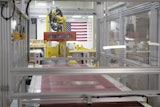In 2012, New York City made headlines when Mayor Michael Bloomberg proposed a ban on selling sodas and sugary beverages larger than 16 ounces. While the ban was never enacted, controversy surrounding the sale of sugary drinks due to health concerns continues to grow — now, on a global level.
Most recently, England’s National Health Service (NHS) announced that it plans to introduce its own 20-percent tax on all fizzy drinks sold on NHS properties by 2020. Meanwhile, in the United States, California and the city of Philadelphia are considering 2 and 3 cents-per-ounce taxes on sugar-sweetened sodas, respectively. These proposed taxes, combined with the gradual consumer shift towards flavored waters and healthy juices, are slowly eating into soft drink companies’ shares of the beverage market.
For the last 10 years, the demand on sugary drinks has been in steady decline. In Europe, sales have dropped by over five percent, and by 10 percent in the U.K. alone, BBC reported. In the U.S., the sale of carbonated drinks has decreased by 14 percent, as stated by The Wall Street Journal. And, in Mexico, sales have diminished by 12 percent, after the country introduced a 10 percent tax on sugar-sweetened beverages in 2014, according to the British Medical Journal.
Facing declining profits due to shifting consumer tastes and potential or current legislation, sugary drinks companies must start looking for ways to guarantee tighter control of their bottom line and to recoup their losses. These companies can begin by honing in on their manufacturing operations and considering how an effective enterprise quality management system can help safeguard profits.
With an enterprise quality management solution, sugary drinks manufacturers can leverage statistical process control (SPC) methodologies to not only improve overall product quality, but also to pinpoint opportunities for improving manufacturing efficiencies and controlling processes to offset additional costs. Once quality data are collected and made available in the system, it is easy to analyze those data values and make changes that can save millions.
Reducing scrap or waste from overfill is one of the most significant areas in which beverage manufacturers can use quality data to improve processes. With industry regulations pertaining to net contents, many organizations are afraid to under-fill a can or bottle. Therefore, manufacturers often end up putting more product into their containers than is actually needed. This intentional overfilling leads to lost profits, as these companies are unnecessarily, yet consciously, giving away product.
By using the insight, or Manufacturing Intelligence, obtained through a quality management solution to reduce product overfill across lines, manufacturers can save millions of dollars every year — money that goes directly to the bottom line. In a plant that produces tens of thousands of cans per hour, even the smallest reduction in overfill can generate massive savings across the enterprise.
In addition to improving processes within their own plants to recoup costs, beverage manufacturers must look to collaborate with suppliers and control processes throughout the supply chain. Using cloud-based technology, an enterprise quality management solution provides supply chain-wide visibility; drinks companies can connect with their suppliers, packaging companies, bottlers and other partners to identify where they can realize additional savings during their production processes. For instance, if a packaging company can reduce the weight of a can or bottle by a fraction of a gram, it could save millions — much like the effects of eliminating overfill.
Traditionally, manufacturers and suppliers have been hesitant to share information and quality data. Fast forward to today, and beverage manufacturers and their suppliers both have a vested interest in the other’s success. If these parties come together, pool their resources and collaboratively evaluate ways to help one another, they can improve their ability to combat new challenges, such as the various sugary drinks taxes. Closer alliances among beverage manufacturers and their suppliers, whereby information and data are more freely shared, will improve the overall supply chain and reduce quality costs.
While the next sugary drinks tax is undoubtedly around the corner, it is up to beverage manufacturers to invest in quality control efforts to recoup potential losses and maintain a competitive advantage in the marketplace. By using enterprise quality management systems to establish visibility into their enterprise and across the supply chain, beverage manufacturers and their suppliers can improve processes and reduce costs, ensuring that both parties remain viable and profitable in the future.























